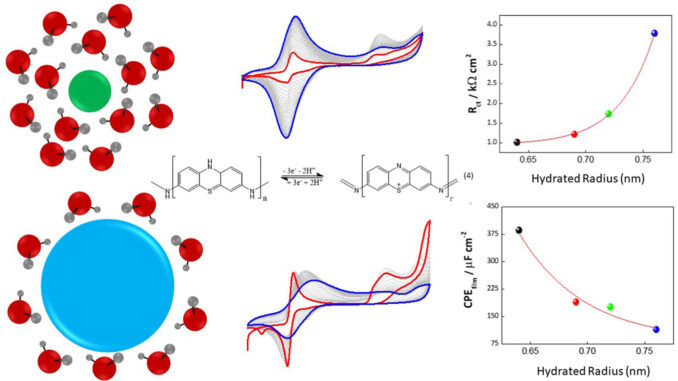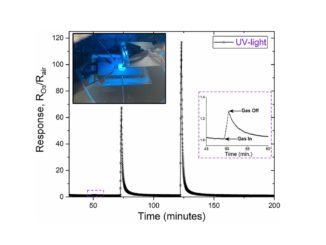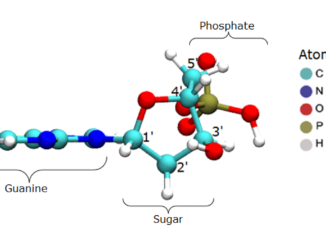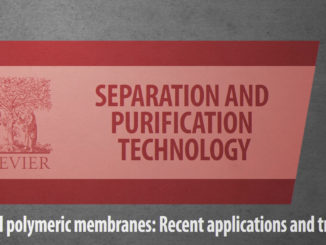
Role of anion size in the electrochemical performance of a Poly(thionine) redox conductive polymer using electrochemical impedance spectroscopy
Abstract: Thionine is one of the most studied monomers for the synthesis of conductive polymer films by electropolymerization. Poly(thionine) film has interesting properties that can be applied in different areas, such as energy storage, photoelectronic devices, and electrochemical sensors. During electropolymerization, the anion in the solution plays a crucial role in polymer synthesis, which can result in changes in the (electro)chemical behavior. Thus, the present study evaluated the influence of the supporting electrolyte anion size used during the electropolymerization of poly(thionine) on the electrochemical behavior. Poly(thionine)Cl, poly(thionine)NO3, poly(thionine)H2PO,4 and poly(thionine)HSO4 films were electrosynthetized using HCl, HNO3, H3PO4, and H2SO4 inorganic acids, respectively. Electrochemical impedance spectroscopy (EIS) shows a linear relationship between anion size and interfacial physicochemistry phenomenon due to the charge transfer resistance of the polymer and capacitance of the electrical double layer. This behavior originates from both a decrease in the mobility of the anions with increasing anion size and a decrease in the porosity. This result can help design strategies for building polymeric thionine films for (bio)sensors or charge storage applications.
Author(s): Olean-Oliveira, A.; Brito, G. A. O.; Cardoso, C. X.; Teixeira, M. F. S.
Polymer
Published: 14 October 2022, Volume 258, 125291
DOI: https://doi.org/10.1016/j.polymer.2022.125291
CDMF
The CDMF, hosted at the Federal University of São Carlos (UFSCar), is one of the Research, Innovation and Dissemination Centers (RIDC) supported by the São Paulo State Research Support Foundation (Fapesp), and also receives investment from the National Council Scientific and Technological Development (CNPq), from the National Institute of Science and Technology of Materials in Nanotechnology (INCTMN).




